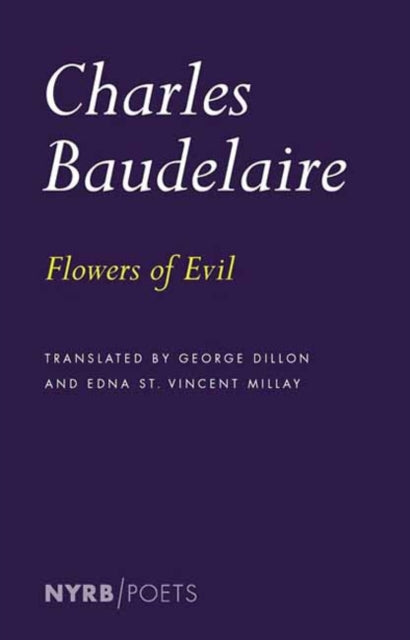1
/
of
1
Flowers of Evil
Flowers of Evil
Author(s):
Charles Baudelaire
George Dillon
ISBN: 9781681378282
Format: Paperback
Publisher:
Genre and Subgenre:
Charles Baudelaire
George Dillon
ISBN: 9781681378282
Format: Paperback
Publisher:
Genre and Subgenre:
Low stock
Regular price
RM99.95
Regular price
Sale price
RM99.95
Quantity
Couldn't load pickup availability
Author: Charles Baudelaire, George Dillon
ISBN: 9781681378282
Format: Paperback
Publisher: NYRB Poets
Seminal, inspired translations of one of the greatest poets of all time by Edna St. Vincent Millay and George Dillon, now available in a sleek new edition.
It's no exaggeration to say that Charles Baudelaire invented modern poetry. Flowers of Evil has been a bible for poets from Rimbaud to T.S. Eliot to Edna St. Vincent Millay, who, with Georges Dillon, brought out an inspired rhymed version of the book in 1936. Here it is reprinted, with the French originals, for the first time in many years. Millay and Dillon's versions are virtuosic in their handling of rhyme and meter, and their take on the Flowers of Evil as a whole is among the most persuasive English, capturing in flowing lines comparable to Baudelaire's the tortured consciousness and troubling sensuality that are his opulent music's counterpart. The book also allows readers a new appreciation of the range of Millay's own achievement as a poet and translator.
View full details
ISBN: 9781681378282
Format: Paperback
Publisher: NYRB Poets
Seminal, inspired translations of one of the greatest poets of all time by Edna St. Vincent Millay and George Dillon, now available in a sleek new edition.
It's no exaggeration to say that Charles Baudelaire invented modern poetry. Flowers of Evil has been a bible for poets from Rimbaud to T.S. Eliot to Edna St. Vincent Millay, who, with Georges Dillon, brought out an inspired rhymed version of the book in 1936. Here it is reprinted, with the French originals, for the first time in many years. Millay and Dillon's versions are virtuosic in their handling of rhyme and meter, and their take on the Flowers of Evil as a whole is among the most persuasive English, capturing in flowing lines comparable to Baudelaire's the tortured consciousness and troubling sensuality that are his opulent music's counterpart. The book also allows readers a new appreciation of the range of Millay's own achievement as a poet and translator.


